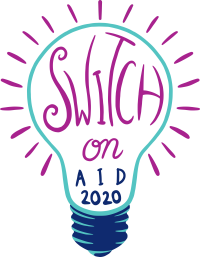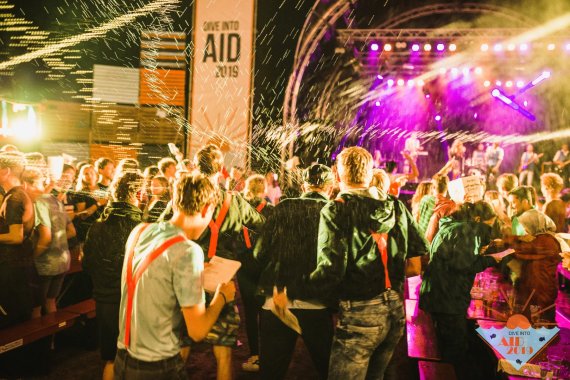The winter-AID is considered the summer-AID’s smaller brother, says AID chair Jessie Beirnaert. ‘We expect some two hundred and fifty participants in February; and at least eight times that number in August.’ The topic of this years’ summer AID, which will take place from 14 to 19 August, is Switch On. ‘This stands for a fresh start, a new phase in life in Wageningen for all newly enrolled students. Your new life is “switched on” and coloured in.’
Huge cantus instead of opening festival
The AID traditionally starts with an opening festival on the campus. Last year, however, this was cancelled and replaced by game night at the homes of all the AID mentors. ‘The nice thing about having a game night on the opening night, is that you get to know each other better, and it also creates a tighter bond between the members of an AID group’, Beirnaert explains. ‘It is a good way to start the week. We intend to use the same principle but want to organise something larger. The first night should be an adventure.’

So, no opening festival, but an extra-large cantus instead. A cantus is a typically Dutch activity involving singing and drinking in a festive atmosphere. Beirnaert: ‘Previously, there were always two cantusses: one for the bachelors’ groups and one for the masters’ groups. Last year these were merged into one large cantus, but an alternative programme was also available. We have elected not to have an alternative programme this year, but instead, to increase the size of the cantus even further. Naturally, we will have zero-alcohol options, and we will accommodate food allergies and intolerances. We strive to have the largest AID cantus ever.’
Sustainability
The AID board also intends to improve on sustainability. ‘In several areas’, says Beirnaert. ‘In the area of meals, for example. Previously, there were three options participants could choose from: all meals with meat, all meals vegetarian, or flexitarian. We have removed the “all-meat” option. Furthermore, we strive to use only green electricity for all the festivities taking place on Campus.’

 The cantus during the 2019 AID. Photo: AID
The cantus during the 2019 AID. Photo: AID